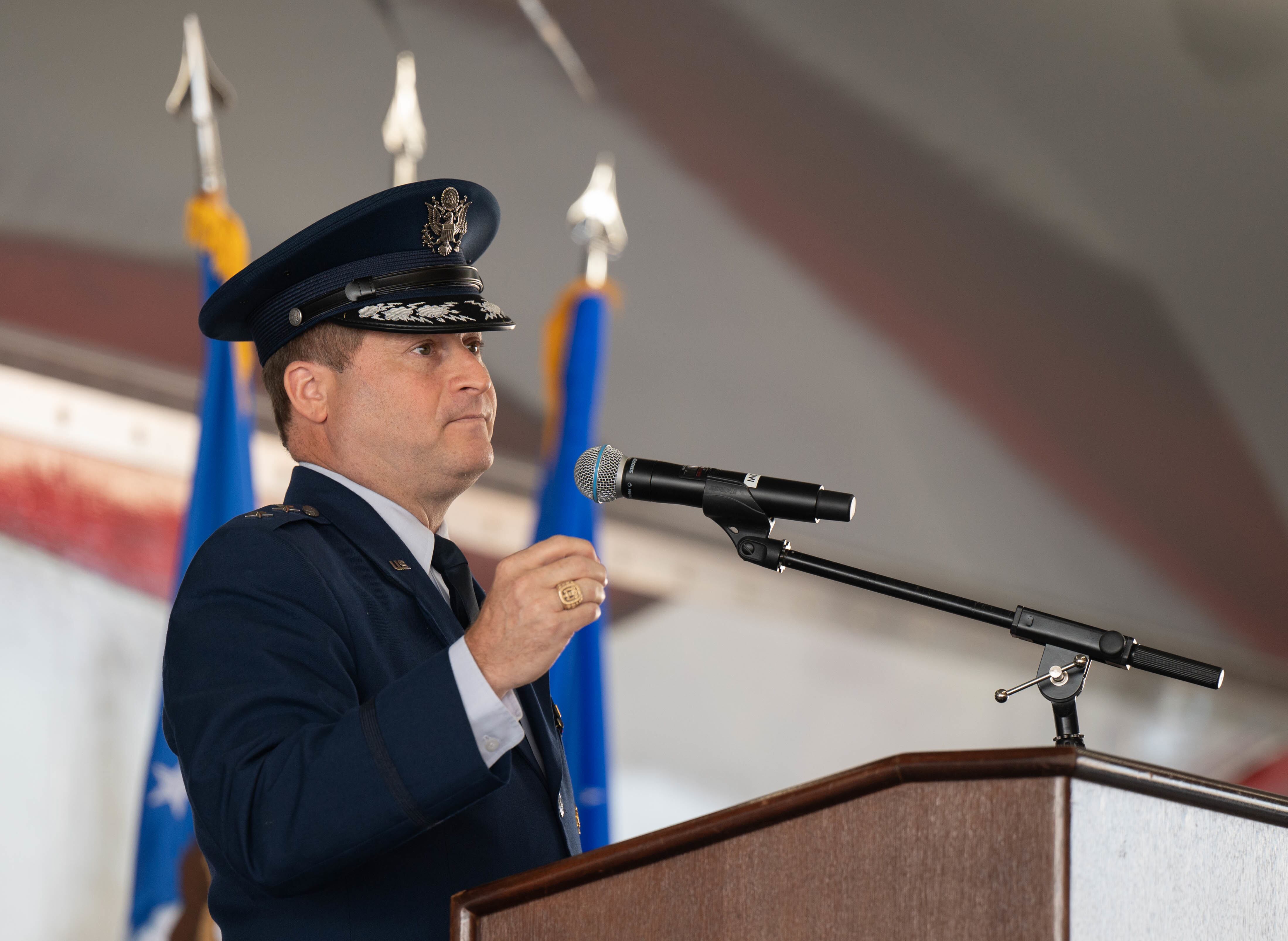The Air Force’s former pilot training boss wants to retire in lieu of facing a court-martial on sexual assault and other charges.
Maj. Gen. Phillip Stewart filed paperwork this week seeking to retire, his civilian attorney, Jeffrey Addicott told Air Force Times Friday. Stewart was arraigned Thursday at Joint Base San Antonio, Texas, during which he deferred entering a plea.
The two-star faces charges that he sexually assaulted a woman at Altus Air Force Base, Oklahoma, in 2023, and other accusations, including that he pursued an unprofessional relationship and flew a plane within 12 hours of consuming alcohol. Stewart’s attorneys have said that the alleged sexual encounter was consensual.
RELATED

A court-martial has been scheduled for June 17 in San Antonio.
Plans for the court-martial, including a motions hearing set for March 21, will go forward as the Air Force considers Stewart’s request, Air Education and Training Command spokesperson Capt. Scarlett Trujillo said.
Air Force Secretary Frank Kendall will make the final decision on whether Stewart is allowed to retire. A grade determination board will also issue its own recommendations on whether he should keep his two stars upon leaving the service. Kendall also would have the final say on the board’s rank recommendation.
Lt. Gen. Brian Robinson, head of Air Education and Training Command, fired Stewart from his job leading the 19th Air Force in May amid a misconduct investigation. In his previous role, Stewart oversaw the service’s pilot training as well as 32,000 employees and more than 1,500 aircraft from JBSA-Randolph.
Addicott has alleged that a military judge who presided over the preliminary hearing late last year recommended that the sexual assault charges be dropped, and that lesser offenses should have been handled administratively. The Air Force has declined to comment on the judge’s recommendations.
Addicott argues that by pressing forward, the government is violating the spirit of a new law removing prosecution of some of the most serious criminal charges, including sexual assault, from the purview of the chain of command in favor of special trial counsels.
As a result, “the general feels that he cannot get a fair trial,” Addicott said.
“He thinks the best thing to do is simply to submit a retirement in lieu of court martial,” he said.
Stewart’s case is not subject to the new rules because the charges were filed before the changes took effect in December.
If Stewart’s retirement request is denied, he will plead not guilty, Addicott said. The general has also deferred his decision on whether to be tried by a military judge alone or by a jury of his peers, which could be a challenge for the service — only about 200 generals, lieutenant generals and major generals serve in the Air Force.
Col. Matthew Stoffel, who presided over Thursday’s arraignment, issued an order requiring potential jurors, who were previously selected as part of the referral process, to avoid publicity surrounding the case before the trial begins. Those potential members have been notified and provided a copy of the military judge’s order, Trujillo said.
Stewart was charged last September with two counts of sexual assault under Article 120 of the Uniform Code of Military Justice; two counts of dereliction of duty under Article 92; one count of conduct unbecoming of an officer under Article 133; and one count of extramarital sexual conduct under Article 134.
He faces a minimum sentence of dismissal or dishonorable discharge, or up to 66 years in confinement and forfeiture of pay if convicted at court-martial.
Correction: A previous version of this story misstated the rank of Air Education and Training Command boss Lt. Gen. Brian Robinson.
Courtney Mabeus-Brown is the senior reporter at Air Force Times. She is an award-winning journalist who previously covered the military for Navy Times and The Virginian-Pilot in Norfolk, Va., where she first set foot on an aircraft carrier. Her work has also appeared in The New York Times, The Washington Post, Foreign Policy and more.





